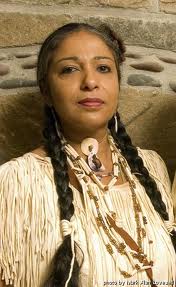On
this date in 1723, we celebrate the birth of Crispus Attucks. He was a Black
merchant and patriot.
Little
is known about the early years of Attucks. He was born a slave around in the
(then) colony of Massachusetts. His father, Prince Yonger, was African and his
mother, Nancy Attucks, was an Indian and possible descendant of John Attucks, a
member of the Natick Indian tribe. John Attucks was executed for treason in
1676 during the King Philip War. The word "attuck" in the Natick
language means deer.

In
1750, young Attucks, a slave of William Brown of Framingham, was an successful
horse and cattle trader who did business with white men. He used the money he
made to try to buy his freedom from his owner, William Brown, who refused his
offer. Attucks ran away. He was never caught and nothing was known of him for
nearly 20 years before he resurfaced again. Historians guess that he escaped to
Nantucket, MA, and sailed as a harpooner on a whaling ship.
During
those years, the American colonies resented having to buy almost everything
from England and were unhappy about the lack of free trade. The most outspoken
protests came from Massachusetts Colony. The British king, George III, sent two
regiments into the Boston Harbor in the fall of 1769. Many conflicts with the
citizens of Boston resulted, and one drew in Attucks who was living in Boston
On March 5, 1770, Attucks was eating dinner when he became aware of a fight
between Boston men and British soldiers. He went to Dock Square to investigate.

It
has been said that he picked up a stick and shouted to the crowd gathered there
to follow him to King Street. When they arrived, Attucks went to the front of
the crowd and struck at one of the British soldiers. The soldier fatally shot
him twice. Four other men were killed and six more wounded. The next day,
Attucks' body was taken to Faneuil Hall, and two days later, all the businesses
were closed for his and the other victims' funeral. This event is known as the
Boston Massacre.
In
1888, a Crispus Attucks monument was erected on Boston Common. In 1996,
President Clinton enacted a Black Patriots Coin Law to commemorate
African-American contributions to the founding of America. The coin was struck
in 1998, the 275th anniversary of the birth of Crispus Attucks, the first man
to die for America's freedom.

Crispus
Attucks (c.1723-1770) is often remembered as the first casualty of the American
Revolution. In fact, others had died in previous incidents, but Attucks’s death
during the King Street riot of March 5, 1770—later referred to as the Boston
Massacre—earned him a place in the national narrative of America. In that
skirmish between soldiers and citizens, Attucks was, as one poet later wrote,
“the first one rent apart that liberty’s steam might flow; for our freedom now
and forever, his head was the first laid low.” He was indeed among the “first
to defy, and the first to die,” but it is equally important to examine his
life.[1] Who was this man? Beyond how he was labeled a “Mulatto” and sometimes
identified by witnesses as “Indian,” what do we know about the life of Crispus
Attucks?
Much
can be learned from Attucks’s name alone. In 1643, theologian Roger Williams
published a journal regarding his experiences with Native tribes, most notably
the Narragansetts of the similarly named bay in Rhode Island. Included in his
writings are helpful translations from English to that Native language and vice
versa. His journal notes that “Auttuck” means deer.[2] One “John Auttuck,
Indian” was named in a warrant during King Philip’s War in 1676, and was
subsequently captured and executed in Framingham, Massachusetts.[3] The surname
“Petterattuck” can also be found in William Barry’s history of Framingham.[4]
We can safely conclude that Native people of Massachusetts, and specifically in
Framingham, used “Attucks” (or a variation of it) as a surname.
It
is believed that Attucks was born into slavery due to his African ancestry. His
first name “Crispus” refers to Flavius Julius Caesar of fourth-century Rome,
and was almost certainly given to him by his master since it was common for
owners to name slaves after Roman nobility or gods. However, Crispus was not a
common name by any means.
Reference:
The
African American Desk Reference
Schomburg
Center for research in Black Culture
Copyright
1999 The Stonesong Press Inc. and
The
New York Public Library, John Wiley & Sons, Inc. Pub.
ISBN
0-471-23924-0
Reference:
The
African American Atlas
Black
History & Culture an Illustrated Reference
by
Molefi K. Asanta and Mark T. Mattson
Macmillam
USA, Simon & Schuster, New York
ISBN
0-02-864984-2

No comments:
Post a Comment